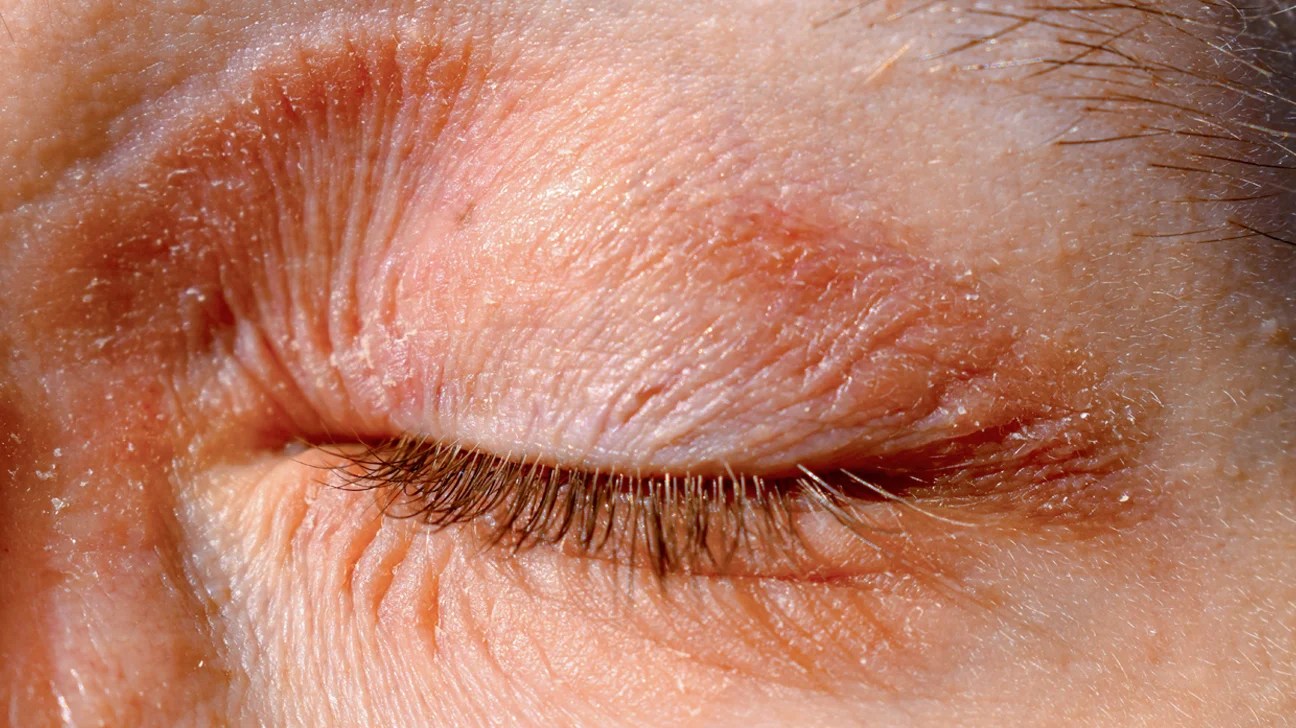Eczema Near Eyes: Understanding, Causes, And Treatments
Eczema near the eyes can be a distressing condition for those who experience it. The sensitive skin surrounding the eyes is particularly vulnerable to various irritants and allergens, making it crucial for individuals to understand the causes and potential treatments available. Often characterized by redness, itching, and inflammation, eczema can significantly impact one's quality of life and self-esteem.
People with eczema near the eyes may find themselves avoiding social situations or feeling self-conscious about their appearance. The discomfort associated with this condition can also lead to difficulties in daily activities, such as applying makeup or even wearing glasses comfortably. With the right information and guidance, however, individuals can manage their symptoms and improve their skin's condition.
In this article, we will explore various aspects of eczema near the eyes, from understanding its causes to discovering effective treatment options. By providing comprehensive insights, we hope to empower those affected by this condition to seek appropriate care and find relief.
What Causes Eczema Near the Eyes?
Eczema is often triggered by a combination of genetic and environmental factors. Here are some common causes:
- Allergies to certain foods, dust mites, or pet dander
- Exposure to irritants, such as soaps, detergents, or cosmetics
- Weather changes, particularly dry or cold conditions
- Stress, which can exacerbate symptoms
How Can I Identify Eczema Near My Eyes?
Identifying eczema near the eyes involves recognizing the characteristic signs and symptoms. Some common indicators include:
- Red, inflamed skin around the eyes
- Dryness and flakiness
- Itching or a burning sensation
- Swelling or puffiness
Is Eczema Near the Eyes Contagious?
No, eczema is not contagious. It is a chronic skin condition that results from a combination of genetic predisposition and environmental triggers. Individuals with eczema near the eyes cannot transmit the condition to others through physical contact.
What are the Treatment Options for Eczema Near the Eyes?
There are various treatment options available for managing eczema near the eyes, including:
- Topical corticosteroids to reduce inflammation
- Moisturizers to keep the skin hydrated
- Antihistamines to alleviate itching
- Prescription medications for severe cases
Can Lifestyle Changes Help Manage Eczema Near the Eyes?
Making certain lifestyle changes can significantly improve the management of eczema near the eyes. Consider the following tips:
- Use fragrance-free skincare products
- Maintain a consistent moisturizing routine
- Avoid known allergens and irritants
- Practice stress-reduction techniques, such as yoga or meditation
When Should I See a Doctor for Eczema Near the Eyes?
If you notice persistent symptoms or if your condition worsens despite at-home treatments, it is essential to seek medical advice. A healthcare professional can provide a proper diagnosis and recommend appropriate treatment options tailored to your needs.
How Can I Prevent Eczema Near the Eyes from Flaring Up?
Prevention is key in managing eczema near the eyes. Here are some strategies to minimize flare-ups:
- Identify and avoid triggers that cause your symptoms
- Keep your skin moisturized, especially during dry seasons
- Wear protective eyewear in harsh weather conditions
- Establish a regular skincare routine
Are There Any Home Remedies for Eczema Near the Eyes?
While medical treatments are essential, some individuals find relief with home remedies. Consider trying:
- Cold compresses to soothe irritation
- Aloe vera gel for its calming properties
- Chamomile tea bags applied to the eyes for anti-inflammatory benefits
What Should I Avoid If I Have Eczema Near My Eyes?
To protect your skin and prevent exacerbation of symptoms, be cautious of the following:
- Avoid harsh soaps and skincare products
- Steer clear of allergens and irritants
- Limit sun exposure without protection
- Avoid rubbing or scratching the affected area
In conclusion, eczema near the eyes can be a challenging condition to manage, but understanding its causes, symptoms, and treatment options can help individuals find relief. With the right approach, including lifestyle changes and medical interventions, you can effectively manage your symptoms and improve your overall quality of life.
| Personal Details | Bio Data |
|---|---|
| Name | John Doe |
| Age | 30 |
| Occupation | Graphic Designer |
| Location | New York, USA |
| Interests | Photography, Traveling, Writing |
Article Recommendations
- Daystar Scandal 2024 Jonathan Lamb
- Chip Gaines Heart Attack
- Subashree Mms
- Rege Jean Page And Emily Brown
- Did Justin Bieber Die
- Juliette Norton
- Katy Perry
- Hanna Gucwinska
- Bane Quotes Dark Knight
- Paulina Andreeva




